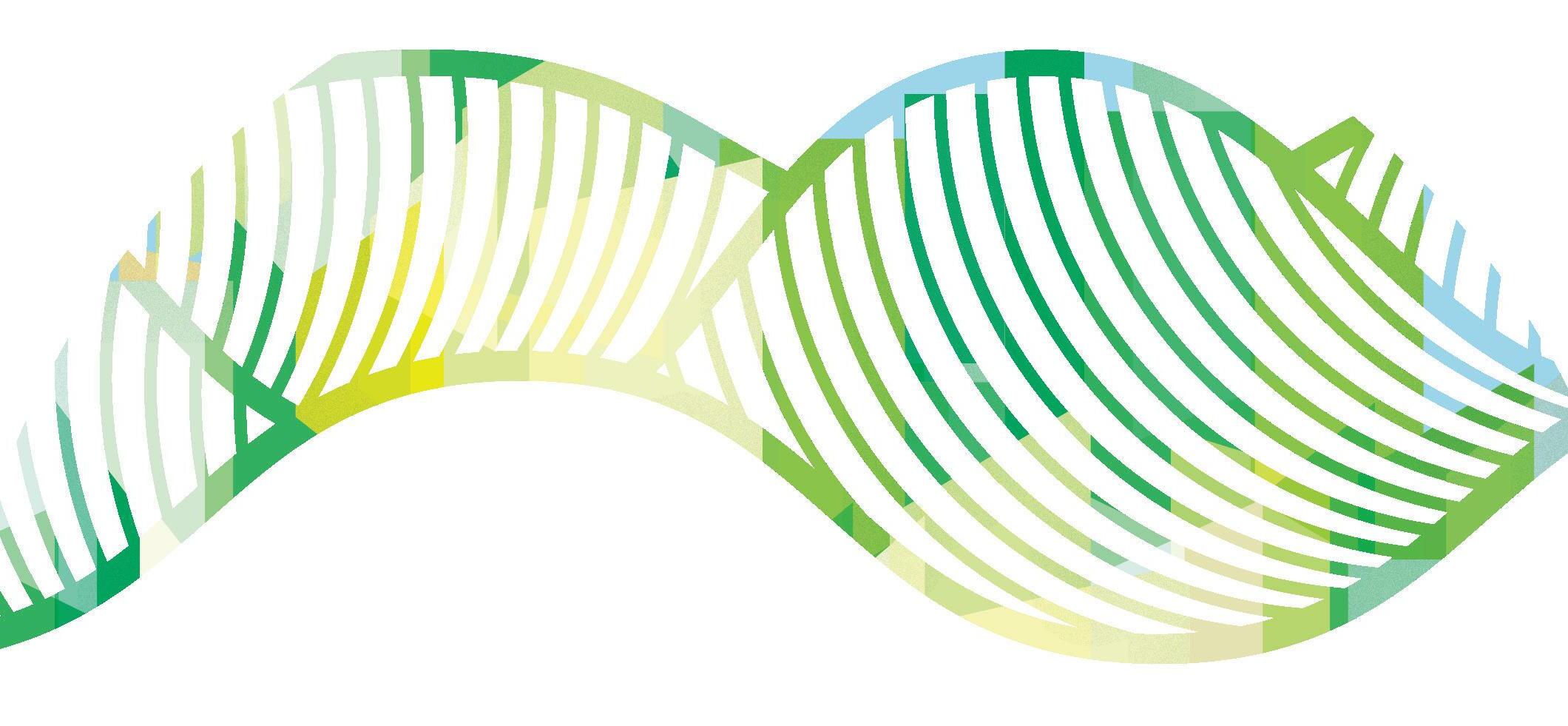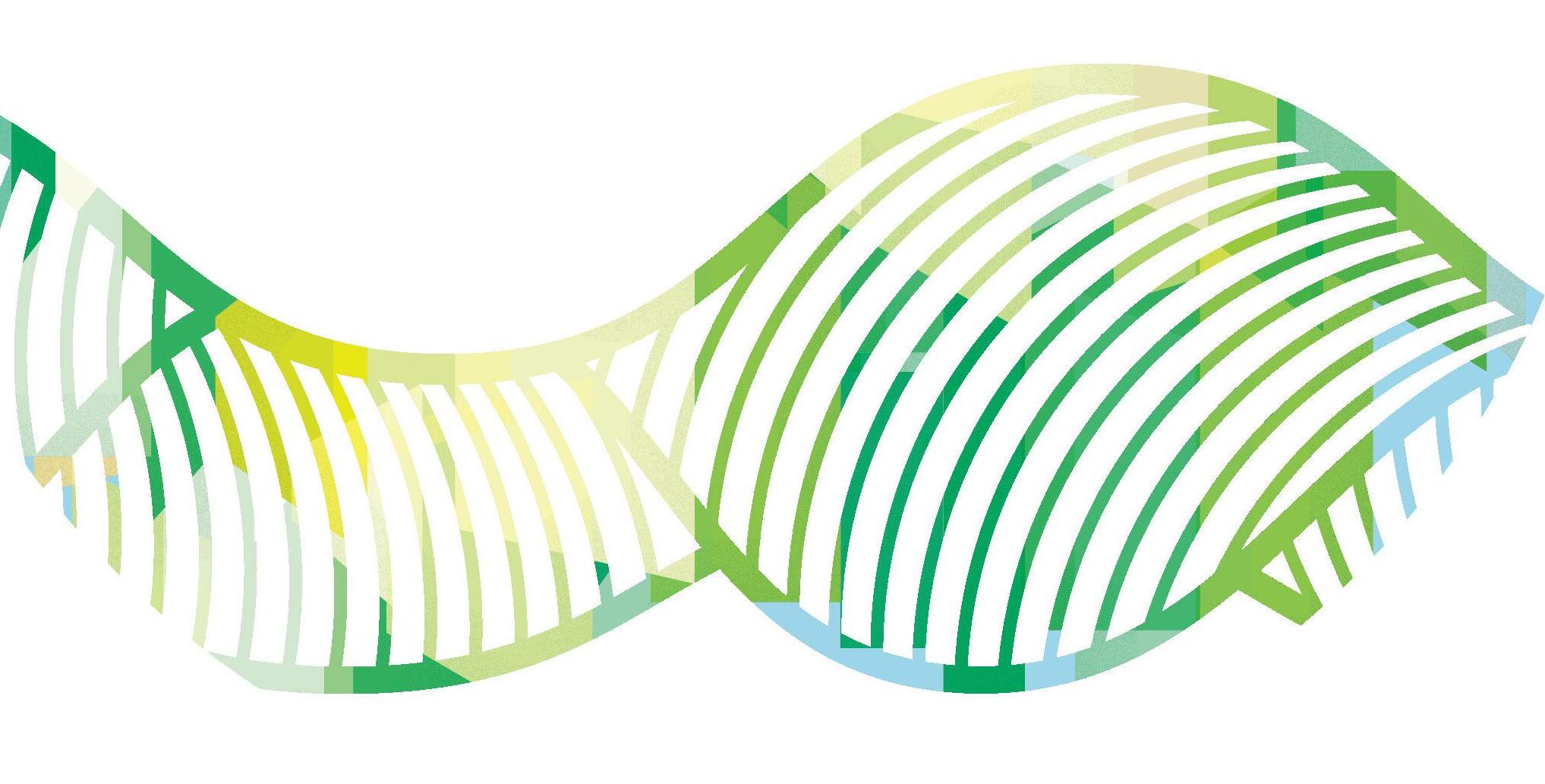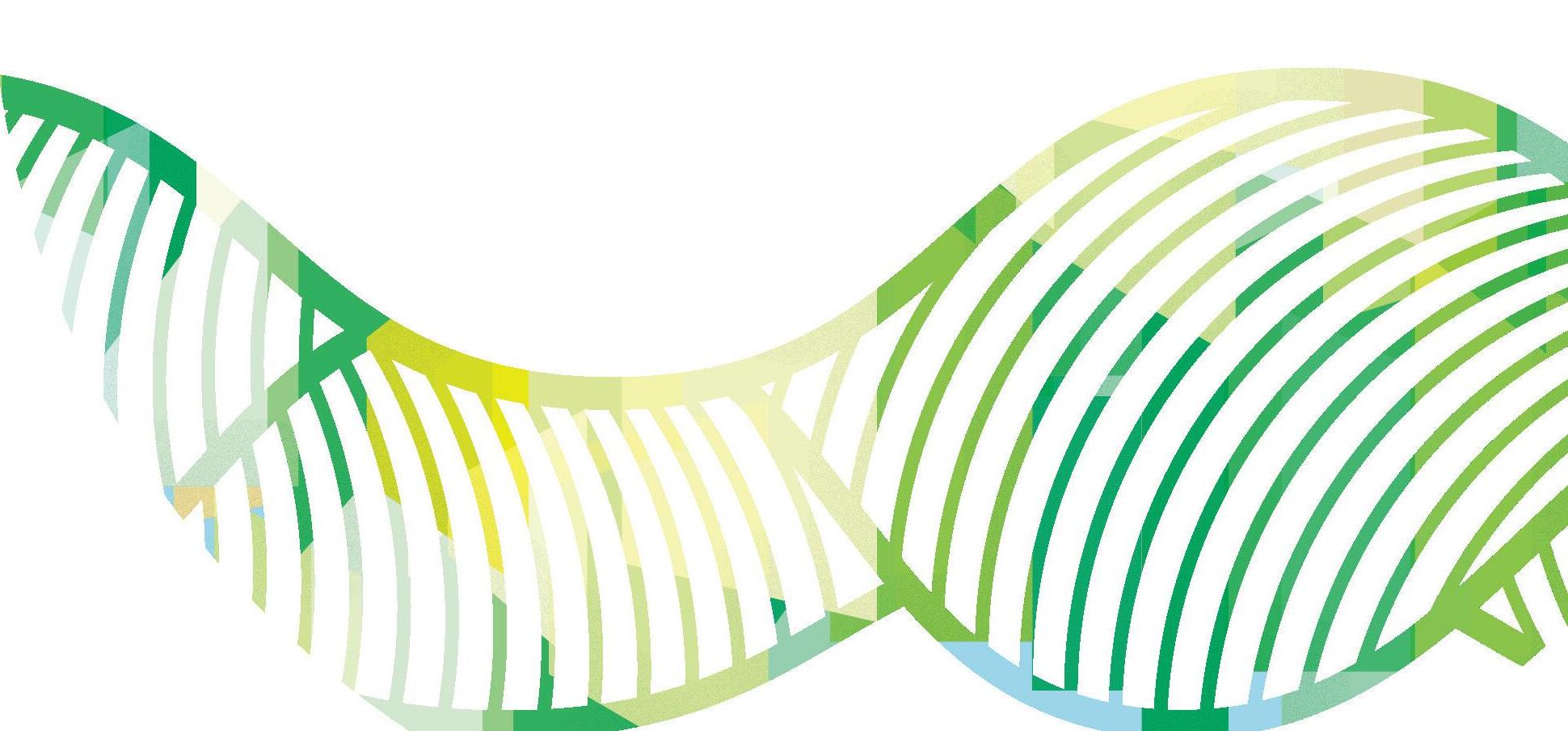CHANGES

When Your Whole World
CHANGES
Building your spiritual resources during an uncertain time

Contents
What happens now?
Day 1 Help me!
Day 2 Feeling vulnerable
Day 3 No more!
Day 4 Is God punishing us?
Day 5 Unstoppable tears
Day 6 Who understands?
Day 7 Is God really good?
Day 8 Alone in grief
Day 9 Security in chaos
Day 10 Longing for community
Day 11 Anger
Day 12 Disconnected from God?
Day 13 Inseparable!
Day 14 Dare to hope!
Day 15 Feeling stuck


Day 16 Uncertainty – guaranteed
Day 17 Gloom lifting
Day 18 Not the same person
Day 19 Finding joy in life
Day 20 Moving forward
Day 21 Contentment
Day 22 Generous love
Day 23 Sharing comfort
Day 24 The gift of helping
Day 25 Love one another
Day 26 Choosing to forgive
Day 27 Life to the full
Day 28 Hope restored
Day 29 Living well
Day 30 Strength for tomorrow
This disaster has changed our whole world.

What happens now?

When a major disaster occurs, our capacity to deal with it is quickly overwhelmed. The combination of massive need and almost no time to prepare cripples effective response by governments and healthcare systems and strains the infrastructure providing essential goods and services.
On a personal level, we struggle to find our way through the confusion, fear and painful losses that come with this crisis.


Few of us have faced a crisis like this. Most of us haven’t had to cope with such dramatic changes to our daily routines. We haven’t faced the uncertainty of changing circumstances on this scale.
This disaster affects our every thought, every decision and every action every moment of the day. We have no idea what tomorrow may bring. We may wonder if the stories we see on television today will become our story tomorrow.
Amid such turmoil, we long for comfort, stability and hope. The Bible, God’s Word to humanity, is the story of God’s faithful love for each of us in every circumstance. It can be a great encouragement during such times. It gives voice to our anger, heartache, fears and hopes. It comforts us for today and strengthens us for tomorrow. It helps us to see beyond our immediate struggles to the eternal hope God brings to the whole of life.
These daily readings explore some of the common feelings and thoughts we may experience following a disaster.
Each reading includes a question or thought inspired by survivors of disasters and crises, a passage to read from the Bible and encouragement to help you cope with the new challenges of daily living. The readings conclude with a thought or question for you to keep in mind as you go through your day or to use as a prompt for your journaling or prayer time.

May God bless you and keep you moment by moment, day by day, as you seek to follow Jesus faithfully even when your whole world changes.

Help me!
I’m stunned.
I had heard that surviving a disaster could be bad, but I never imagined it would be like this for me, my family and my community.
It’s a lot worse than I expected.
Even if we do everything right, I can’t be certain that the people I love most will be safe.
What do I do now?
Where can I find help?


We’ve all seen news about disasters. The pictures and sound bites of earthquake zones, floods, armed conflict, and famines give us a tourist-like montage of the chaos. But they don’t begin to convey the uncertainty, loss and pain these events bring to the lives of the people affected.
Coping with what lies ahead may take every bit of our strength and ability – and even more.
We aren’t alone when we feel weary, weak or inadequate. Others have needed help during difficult times too. The following passages from the book of Psalms were written by King David, a man who was all too familiar with suffering and heartache. Perhaps he describes some of the feelings you’re experiencing.
Be merciful to me, Lord, for I am in distress; my eyes grow weak with sorrow, my soul and my body with grief. My life is consumed by anguish and my years by groaning; my strength fails.
Praise be to the Lord, for he showed me the wonders of his love when I was in a city under siege. In my alarm I said, ‘I am cut off from your sight!’ Yet you heard my cry for mercy when I called to you for help.
Psalm 31:9–10, 21–22
What would you like to say to God about the disaster you have lived through and the impact it’s having on you today?

Feeling vulnerable
So much has happened – and things continue to happen.
I can’t stop the onslaught of bad news. I can’t even protect and provide for my home and family.
I feel so powerless and vulnerable.
The world doesn’t seem safe anymore.
One reason disasters are frightening is because they are beyond our control. We may know what’s happening, but we don’t know how it will affect us or how long it will take to recover.



We don’t know when – or if – our lives will return to normal. For many of us, that uncertainty doesn’t feel good.
When we’re used to depending on our own ability and power to feel safe, we may feel especially vulnerable when a disaster takes that control away. But while we’re powerless to help ourselves, God, the creator of the heavens and the earth, remains powerful and good.
We become strong as we connect with God, the life-giving power of the universe.
The Lord loves righteousness and justice; the earth is full of his unfailing love. By the word of the Lord the heavens were made, their starry host by the breath of his mouth. He gathers the waters of the sea into jars; he puts the deep into storehouses.
Let all the earth fear the Lord; let all the people of the world revere him. For he spoke, and it came to be; he commanded, and it stood firm.
We wait in hope for the Lord; he is our help and our shield. In him our hearts rejoice, for we trust in his holy name. May your unfailing love be with us, Lord, even as we put our hope in you.
Psalm 33:5–9, 20–22
The power and goodness of our almighty God can’t be diminished by any disaster that befalls us.
In which areas of vulnerability will you trust God to be your help and shield?

No more!
I’ve had it!
I can’t concentrate on anything.
It’s so hard to remember what people are trying to tell me. I’m utterly exhausted, but I can’t sleep. I feel so nauseous I can’t eat.
I’m irritated with everyone and impatient about everything. I just want it all to go away!
Dealing with a disaster or crisis is difficult in so many ways. Every part of life may be disrupted by what is happening. Our normal way of doing things doesn’t work anymore. Getting anything done is a challenge, and there’s so much to do that we don’t know where to start.
Figuring it all out is very hard work.



Simply doing our everyday activities reminds us of what we’ve lost and the uncertainty of tomorrow. Grieving these losses and facing our fears is emotionally draining. No wonder we feel overwhelmed!
But we can be confident in this: God hears our distress and offers us his presence.
Listen to my prayer, O God, do not ignore my plea; hear me and answer me. My thoughts trouble me and I am distraught.
My heart is in anguish within me; the terrors of death have fallen on me. Fear and trembling have beset me; horror has overwhelmed me. I said, ‘Oh, that I had the wings of a dove! I would fly away and be at rest. I would flee far away and stay in the desert; I would hurry to my place of shelter, far from the tempest and storm.’
I call to God, and the Lord saves me. Evening, morning and noon I cry out in distress, and he hears my voice.
Psalm 55:1–2, 4–8, 16–17
In what ways do you seek God to be your refuge and strength during this time of trouble?

Is God punishing us?
When I have a moment to myself, I wonder why God has allowed this disaster to happen.
Is God angry with us?
Is God punishing us?
Some people say he is and that we deserve this. That makes me feel guilty about what’s happening.
Does God still love us or has he turned his back on us?
The Bible tells us about a man named Job, who experienced one disaster after another. He lost every one of his beloved children, his financial security was wiped out and he was miserably sick. Some of Job’s friends insisted he must have done something very bad to cause God to punish him.


Job’s friend Eliphaz even said:
‘Consider now: who, being innocent, has ever perished? Where were the upright ever destroyed? As I have observed, those who plough evil and those who sow trouble reap it. At the breath of God they perish; at the blast of his anger they are no more.’
Job 4:7–9
Imagine how Job felt after that bit of ‘encouragement’! But God said Job’s friend was wrong. God wasn’t sending tragedies Job’s way. Tragic events and difficult times that bring great suffering can happen to anyone. And when those times come, we can count on God’s continued love for us.
I remember my affliction and my wandering, the bitterness and the gall. I well remember them, and my soul is downcast within me. Yet this I call to mind and therefore I have hope: Because of the Lord’s great love we are not consumed, for his compassions never fail. They are new every morning; great is your faithfulness. Lamentations 3:19–23
Fear that we have brought disaster upon ourselves is a heavy burden. Because of God’s unfailing love for us, we don’t have to carry that weight. We can find rest in the comfort of his love.
Share with God what his love for you means during this time.

Unstoppable tears
I find myself crying at unpredictable moments.
It’s bad enough when I’m alone, but when I cry around other people, I feel weak and embarrassed. I feel like I should explain myself, but most of the time I can’t.
I just feel unbearably sad and frustrated.
It’s not unusual to experience deep feelings of sorrow, anguish or other emotions during a crisis.
Expressing these emotions, including crying, can be a healthy part of coping with and recovering from everything that is happening. And because of God’s great love for us, we don’t have to keep those feelings to ourselves; we can safely share our every heartache with God.


God deeply understands the reality of human suffering and invites us to cry out to him when we are suffering.
When we’re upset, God feels our pain.
When we grieve, God grieves with us.
No calamity or emotional distress is beyond the reach of his redeeming love.
The hearts of the people cry out to the Lord. You walls of Daughter Zion, let your tears flow like a river day and night; give yourself no relief, your eyes no rest. Arise, cry out in the night, as the watches of the night begin; pour out your heart like water in the presence of the Lord.
My eyes will flow unceasingly, without relief, until the Lord looks down from heaven and sees.

I called on your name, Lord, from the depths of the pit. You heard my plea: ‘Do not close your ears to my cry for relief.’ You came near when I called you, and you said, ‘Do not fear.’ Lamentations 2:18–19a; 3:49–50, 55–57
God is on the side of those who suffer. We can trust him to draw near when we pour out the pain in our hearts to him.
What is your prayer of thanksgiving for God’s presence in the midst of your pain?

Who understands?
I thought things might be looking up a bit, but the news today wasn’t good.
I’m so discouraged and exhausted by this whole mess.
I don’t want to hear or see another news report.
I don’t need reminders that it could be worse.
I don’t want another smiling face telling me that going through this will build our character and bring us together.
They don’t understand what it’s like for me.
That’s true. None of us knows or understands what it’s like for another person to deal with this calamity.


We may want to help and encourage each other, but we often don’t know how. So, without really listening, we may utter inadequate, quick-fix statements that fuel frustration and pain more than they offer comfort.
But there is someone who knows you intimately and loves you beyond what you can imagine. He knows every detail about you – every emotion and thought. With a complete understanding of your every need, he invites you to come to him:
Come to me, all you who are weary and burdened, and I will give you rest. Take my yoke upon you and learn from me, for I am gentle and humble in heart, and you will find rest for your souls. For my yoke is easy and my burden is light.
Matthew 11:28–30
His words and presence offer true comfort to those who seek him:
You have searched me, Lord, and you know me. You know when I sit and when I rise; you perceive my thoughts from afar. You discern my going out and my lying down; you are familiar with all my ways. Before a word is on my tongue you, Lord, know it completely.
Psalm 139:1–4
Wouldn’t it be a relief to be known and understood and to find rest in the midst of your weariness? You don’t have to carry this burden alone.
Will you trust God to know you and give you rest?

Is God really good?
I can’t understand why God allowed this disaster to happen.
An earthquake, flood, tornado or wildfire ravages a helpless community, claiming homes, memories and lives, not caring who stands in its path or what it leaves in its wake.
It’s so unfair! How can God let this happen?
When we suffer a painful crisis, it’s normal to ask questions.



We want to know who is to blame, why the crisis occurred, what could have been done to prevent it, what more we can do to stop it and what God is doing in the midst of it.
Asking the hard questions is painful, especially when we come up empty and start questioning God’s character and role in what is happening.
We’re not alone in doing so. When Job lost his children, possessions and health, he agonised about what had happened to him. He defended his integrity, he questioned God, accused God and demanded that God answer him! Amazingly, God listened to Job’s every word. When Job finished, God told him what it’s like to be the God who created, loves and intimately cares for every detail of the universe! God said,
‘Will the one who contends with the Almighty correct him?
Let him who accuses God answer him!’
Then Job answered the Lord:
‘I am unworthy – how can I reply to you? I put my hand over my mouth. I spoke once, but I have no answer.’
‘I know that you can do all things; no purpose of yours can be thwarted. You asked, “Who is this that obscures my plans without knowledge?”
Surely I spoke of things I did not understand, things too wonderful for me to know.’
Job 40:2–5a, 42:2–3
We may not find answers for what troubles us, but God is good and loving, always working in powerful ways we can’t imagine.
What frustrations and questions do you need to share with God today?

Alone in grief
My heart aches!
People have lost their jobs and their homes. Students are missing out on future opportunities. Business owners have lost their income and their life savings.
And the loss of life is terrible.
I’m
so discouraged I sometimes don’t know how to go on.
God didn’t create us to fend for ourselves in our grief. He placed us in families, with friends and in communities so we can share the good times and bad times of life together.



The Bible affirms the value of our human relationships –it tells us that two are better than one – and encourages us to love one another. Even a personal conversation or sharing a meal together can lift our spirits.
But what do we do when we are discouraged and weary? Where is our hope for comfort and encouragement then? The Bible tells us about Elijah, a man who faced lifethreatening chaos and felt so abandoned and alone that he gave up on life.
‘I have had enough, Lord’ he said. ‘Take my life; I am no better than my ancestors.’ Then he lay down under the bush and fell asleep.
All at once an angel touched him and said, ‘Get up and eat.’ He looked around, and there by his head was some bread baked over hot coals, and a jar of water. He ate and drank and then lay down again.
The angel of the Lord came back a second time and touched him and said, ‘Get up and eat, for the journey is too much for you.’ So he got up and ate and drank. Strengthened by that food, he travelled forty days and forty nights until he reached Horeb, the mountain of God.
1 Kings 19:4–8
God knew the depth of Elijah’s discouragement and sent help in an unexpected way. God understands your heartache too.
Pray for a heart that is open to receive God’s unexpected gifts of encouragement.

Security in chaos
Every day brings new changes in life.
Nothing – not even going out to buy bread or milk – is as simple as it used to be.
Everything is in chaos.
I’m becoming afraid of what tomorrow might bring. What will happen if I can’t get food or medicine? Will life ever return to normal?
A disaster brings dramatic changes and uncertainty to everyday life.
The result is chaos. It’s very unsettling.


As we adapt to a ‘new normal’ of daily life on earth, we can be sure that nothing has changed with God. He still loves us. He is still watching over us. He is still our solid rock of hope and strength who promises to be with us no matter what disasters befall us.
God is our refuge and strength, an ever-present help in trouble. Therefore we will not fear, though the earth give way and the mountains fall into the heart of the sea, though its waters roar and foam and the mountains quake with their surging.
Psalms 46:1–3
So do not fear, for I am with you; do not be dismayed, for I am your God. I will strengthen you and help you; I will uphold you with my righteous right hand.
Isaiah 41:10
The Lord is near. Do not be anxious about anything, but in every situation, by prayer and petition, with thanksgiving, present your requests to God. And the peace of God, which transcends all understanding, will guard your hearts and your minds in Christ Jesus.
Philippians 4:5b–7

Longing for community
A disaster separates you from the activities and people that mean so much to you. Attending church can be difficult if normal services have been disrupted. Or maybe people are ill or injured.
I appreciate how our pastor tries to support us, but I miss having everyone together. Fellowship, conversations, prayers and encouragement meant so much to me.
Times of separation from our communities of support are hard.
God wants the members of the body of Christ to have loving, meaningful relationships with one another –relationships that we long for when we are separated.


The early Christians had to bear with separation from their spiritual family too.
I urge you, brothers and sisters, by our Lord Jesus Christ and by the love of the Spirit, to join me in my struggle by praying to God for me.
… so that I may come to you with joy, by God’s will, and in your company be refreshed. The God of peace be with you all. Amen.
Romans 15:30, 32–33
We always thank God for all of you and continually mention you in our prayers. We remember before our God and Father your work produced by faith, your labour prompted by love, and your endurance inspired by hope in our Lord Jesus Christ.
Therefore encourage one another and build each other up, just as in fact you are doing.
Rejoice always, pray continually, give thanks in all circumstances; for this is God’s will for you in Christ Jesus.
1 Thessalonians 1:2–3, 5:11, 16–18

Yes, it takes extra effort to express our love and maintain our community relationships when separated. But even when we are apart, our relationship in Christ connects us. And we will rejoice when we meet together again. For now, pray for one another.

Anger
Am I angry? What do you think?
I’ve lost my home and maybe even my job. I can’t meet my family’s basic needs. I have to rely on others.
Yes, I’m angry – very angry about everything!
It’s frustrating when we experience a major loss of control in our lives as we do after a disaster. When we have unmet needs that we can’t or don’t know how to resolve, feelings of insecurity and fear increase. These conditions fuel our anger, building up inside us to a point at which it can become destructive.
Anger isn’t wrong.



Even God gets angry.
But his anger is different to ours, and he wants us to learn from him.
The Lord is compassionate and gracious, slow to anger, abounding in love. He will not always accuse, nor will he harbour his anger forever; he does not treat us as our sins deserve or repay us according to our iniquities.
Psalm 103:8–10
My dear brothers and sisters, take note of this: everyone should be quick to listen, slow to speak and slow to become angry, because human anger does not produce the righteousness that God desires.
James 1:19–20
‘In your anger do not sin.’ Get rid of all bitterness, rage and anger, brawling and slander, along with every form of malice. Be kind and compassionate to one another, forgiving each other, just as in Christ God forgave you.
Ephesians 4:26a, 31–32
God knows our pain, frustration and anger. We don’t have to hide these feelings from him. But he also asks us to restrain our anger, so that we don’t lash out and hurt other people and fall short of God’s desire for us.

Disconnected from God?
I feel as if God is far away; cold and unfeeling.
Is he ignoring me? Is he too busy with other things? Does he still care?
I feel so alone. It would really help to know that God hasn’t abandoned me in my time of need.
From beginning to end, the Bible is the story of God’s love for all of humanity. The Bible assures us that God wants to live with and through his people.
God’s desire to be with us in all of life doesn’t change, no matter what our circumstances are or how we feel.



When God delivered the Israelites from Egypt and brought them to the land he had promised, they faced frightening enemies. God knew they would feel alone, abandoned and afraid. So Moses gave the Israelites an important message from God:
The Lord your God himself will cross over ahead of you. He will destroy these nations before you, and you will take possession of their land.
Be strong and courageous. Do not be afraid or terrified because of them, for the Lord your God goes with you; he will never leave you nor forsake you.
The Lord himself goes before you and will be with you; he will never leave you nor forsake you. Do not be afraid; do not be discouraged.
Deuteronomy 31:3a, 6, 8
God’s desire to be with us has never diminished. When Jesus came to earth, he was given the wonderful name Immanuel, which means God with us. And when Jesus left earth to join his Father in heaven, he promised that his Spirit would come to live among everyone who followed him. Because God would continue living among them, Jesus encouraged his followers by saying,
Peace I leave with you; my peace I give you. I do not give to you as the world gives. Do not let your hearts be troubled and do not be afraid.
John 14:27
Even when we feel anguished and alone, God isn’t far away.
Draw near to him because he is near to you.

Inseparable!
It seems that the complications of this disaster keep growing out of control. As soon as we make one adjustment, we have to make another.
Each change drives us farther apart and isolates us more from one another. That’s supposed to be good for us, but I feel so cut off that I’m beginning to feel spiritually disconnected too!
Disasters of all kinds can disrupt our relationships – not only with family and friends but our relationship with God as well.


Exhaustion from the stress of added responsibilities, grief from the losses we have suffered, and fear because of the uncertainty that lies ahead can lead to us feeling distant and isolated. We may question if our relationship with God is as secure as we thought it was.
Even if we feel spiritually isolated or uncertain of God’s love and presence during these stressful times, God gives us very good news.
Nothing can separate us from his love.
Who shall separate us from the love of Christ?
Shall trouble or hardship or persecution or famine or nakedness or danger or sword?
No, in all these things we are more than conquerors through him who loved us. For I am convinced that neither death nor life, neither angels nor demons, neither the present nor the future, nor any powers, neither height nor depth, nor anything else in all creation, will be able to separate us from the love of God that is in Christ Jesus our Lord.
Romans 8:35, 37–39

That’s quite a list of obstacles that are powerless to separate us from God’s love! In addition, Paul’s teaching on love reminds us that love never fails. The love of God in Christ Jesus is always there for us, even if we struggle to feel connected to that love.
Talk to God about anything that may be a barrier that is preventing you from receiving his love for you.

Dare to hope!
It sometimes feels hopeless and impossible to go on.
The things I used to look forward to are gone, and I don’t know what to hope for in the future.
I keep thinking of that old saying: Life is hard and then you die. But I have a different take on it now. What do you do when life is hard and then you live?
The losses, disappointments and trials of life can rob us of hope even when we desperately want to hold on to it.


God knows our frailty. He heard the cries of Job in the midst of his great trials.
If the only home I hope for is the grave, if I spread out my bed in the realm of darkness, where then is my hope –who can see any hope for me?
Job 17:13–15
God rejoiced when his servant David found joy and strength in the hope of the Lord.
Yes, my soul, find rest in God; my hope comes from him.
Truly he is my rock and my salvation; he is my fortress, I shall not be shaken.
Psalm 62:5–6
God knows how important it is for us to have hope that will never fail us. In his great love, he offers us that hope.
The Lord is the everlasting God, the Creator of the ends of the earth. He will not grow tired or weary, and his understanding no one can fathom. He gives strength to the weary and increases the power of the weak. Even youths grow tired and weary, and young men stumble and fall; but those who hope in the Lord will renew their strength. They will soar on wings like eagles; they will run and not grow weary, they will walk and not be faint.
Isaiah 40:28b–31
Where do you seek hope?
Dare to look beyond today’s troubles and trust in the hope of God’s love for you.

Feeling stuck
I keep thinking about everything that has happened since the disaster: the grief of the families whose loved ones have died, the sacrifices of relief workers and others who are trying to save people, the people who have lost their homes and jobs and can’t buy food.
I want to help, but I feel like I’m stuck in a nightmare.
The pain and losses of disasters are very real and will have a significant impact on each of us. It’s good to grieve the losses and to care about the suffering and needs of the people around us. But if we allow the feelings of loss and anxiety about our present to overwhelm us, we may feel trapped and anxious. We may lose hope for a better tomorrow.


Jesus offers another option. He taught his disciples how to live without becoming overwhelmed by worry when they were in difficult circumstances and how to focus their thoughts in a better direction.
‘So do not worry, saying, “What shall we eat?” or “What shall we drink?” or “What shall we wear?”
For the pagans run after all these things, and your heavenly Father knows that you need them. But seek first his kingdom and his righteousness, and all these things will be given to you as well.’
Matthew 6:31–33
From that perspective, Jesus taught them how to pray about living while seeking God’s kingdom.
‘Our Father in heaven, hallowed be your name, your kingdom come, your will be done, on earth as it is in heaven. Give us today our daily bread. And forgive us our debts, as we also have forgiven our debtors. And lead us not into temptation, but deliver us from the evil one.’
Matthew 6:9b–13
No matter how bad our circumstances are, God wants us to be his partners in doing his will on earth.

Think about one thing that you can focus on today; something that will help you move from having paralysing thoughts to living in the love, goodness and hope of God’s kingdom on earth.

Uncertainty –guaranteed
Nothing will ever be the same.
There have been so many changes: how we shop for food, our sense of belonging, how we engage with our community and even how we live as a family. I don’t know what I can rely on anymore.
It’s true. Life will be different for some time as we recover from the impact of this disaster and some things will never be the same. But changes, painful losses and hardships don’t have the last word.
Being in difficult circumstances doesn’t mean that God has abandoned us or that life will never be good again.

The Bible tells us the story of Joseph. He was his father’s favourite son, and his brothers were jealous of him. Joseph experienced difficult circumstances when his brothers sold him into slavery! Despite their betrayal, Joseph became a good slave in an important official’s household. The official rewarded Joseph by putting him in charge of running his household. But later, Joseph went to prison for many years because of false accusations against him.
But bad circumstances don’t stop God from accomplishing his work. Through these struggles, God taught Joseph his ways and prepared him to be a wise leader. Eventually, Joseph led Egypt in preparing for and surviving a widespread famine. Even Joseph’s family came to Egypt for food!
How do you think Joseph perceived the unexpected turn of events? Notice his response to his brothers who thought he would take revenge on them for mistreating him.
‘We are your slaves,’ they said. But Joseph said to them, ‘Don’t be afraid. Am I in the place of God? You intended to harm me, but God intended it for good to accomplish what is now being done, the saving of many lives. So then, don’t be afraid. I will provide for you and your children.’ And he reassured them and spoke kindly to them.
Genesis 50:18b–21
The future is always uncertain. After everything that had happened to him, Joseph realised that God was always in control and accomplishing his good work.
When you face the uncertainties of life, does the guarantee of God’s goodness give you hope?

Gloom lifting
The fears and losses of the disaster are still with me, but some days I feel the gloom lifting.
The little pleasures in life are coming back.
I look for a beautiful sunrise or sunset.
I go outside to inhale the rain-freshened air after a storm. I welcome a call from a friend and laugh with my children.
I’m thinking about ways to reach out to my neighbours in need.



We will feel the aftermath of this disaster for a while. Life on earth will never be perfect or painless. We won’t suddenly wake up to a life that is the same as it was before the disaster happened. We may grieve some of our losses for a long time. But we can be encouraged as we acknowledge the small signs of recovery and embrace the healing as it comes. That encouragement will grow as we take time to thank God for his provision, faithfulness and love for us.
This psalm, written to thank God for his provision during a difficult time, reflects your feelings of gratitude and hope for the future.
I love the Lord, for he heard my voice; he heard my cry for mercy. Because he turned his ear to me, I will call on him as long as I live.
The Lord is gracious and righteous; our God is full of compassion. The Lord protects the unwary; when I was brought low, he saved me. Return to your rest, my soul, for the Lord has been good to you. For you, Lord, have delivered me from death, my eyes from tears, my feet from stumbling, that I may walk before the Lord in the land of the living.
Psalm 116:1–2, 5–9
As you seek a new perspective on your recent trials and look for hope moving forward, what can you thank God for?
How will you express your gratitude to him?

Not the same person
I didn’t expect things to be so different.
It’s a challenge to put my life back together in the ‘new normal’ without the resources and opportunities we used to have.
We’re thinking about what’s important and making decisions about things we hadn’t thought about before. I realise I’ve changed. I don’t look at things in quite the same way I used to.
I’m not the same person I used to be.
When our life circumstances, daily routines and priorities, social relationships, or how we view the world around us changes, we often start paying more attention to who we are, what we value and where we’re headed.



The uncertainty and changes that a crisis or disaster brings may become a catalyst for transformation and renewal in our lives. We may have a fresh interest in discovering what is worth pursuing and holding onto in a changing world.
God our Creator loves us. He wants us to find a firm foundation in him and experience a true transformation that gives us renewed strength, hope and purpose in life. The Bible is full of stories about God’s transforming love in the lives of people who have experienced trauma or unwanted change. Consider what some say about trusting God to be their firm foundation:
Yes, my soul, find rest in God; my hope comes from him.
Truly he is my rock and my salvation; he is my fortress, I shall not be shaken. My salvation and my honour depend on God; he is my mighty rock, my refuge.
Psalm 62:5–7
Therefore we do not lose heart. Though outwardly we are wasting away, yet inwardly we are being renewed day by day. For our light and momentary troubles are achieving for us an eternal glory that far outweighs them all. So we fix our eyes not on what is seen, but on what is unseen, since what is seen is temporary, but what is unseen is eternal.
2 Corinthians 4:16–18
Will you trust God to be your foundation and a transforming presence in your life?

Finding joy in life
Why did I live when others died?
The disaster was so random.
Life seems so fragile now.
We may want it to be different, but life is fragile. It doesn’t come with guarantees of happiness or longevity.


While the Bible affirms how fragile our life on earth is, it also promises us something better.
The life of mortals is like grass, they flourish like a flower of the field; the wind blows over it and it is gone, and its place remembers it no more. But from everlasting to everlasting the Lord’s love is with those who fear him.
Psalm 103:15–17a
Let all who take refuge in you be glad; let them ever sing for joy. Spread your protection over them, That those who love your name may rejoice in you.
Psalm 5:11
Because of God’s great love for us, the fleeting nature of life isn’t the end of the story. We can find lasting joy in life when we seek refuge in God’s forgiveness and devote ourselves to living a life that pleases him.
Live a life worthy of the Lord and please him in every way: bearing fruit in every good work, growing in the knowledge of God, being strengthened with all power according to his glorious might so that you may have great endurance and patience, and giving joyful thanks to the Father, who has qualified you to share in the inheritance of his holy people in the kingdom of light. For he has rescued us from the dominion of darkness and brought us into the kingdom of the Son he loves, in whom we have redemption, the forgiveness of sins.
Colossians 1:10b–14
Thank God for his gift of forgiveness and life!
As you go through your day, look for specific moments of purpose, meaning and joy, and thank God for the eternal life he shares with you.

Moving forward
I’m feeling like I can move forward.
I’m beginning to feel that these difficult circumstances will end soon.
I want to celebrate and focus on my future. But then I feel guilty and feel that I’m betraying the people who have died.

Life has recognisable seasons, cycles and rhythms.

It doesn’t stop for very long. When the chaos of this disaster has passed, this poem from the Bible will remind us that there will be a time for mourning, healing, remembering and eventually a time to step towards the future.
There is a time for everything, and a season for every activity under the heavens: a time to be born and a time to die, a time to plant and a time to uproot, a time to kill and a time to heal, a time to tear down and a time to build, a time to weep and a time to laugh, a time to mourn and a time to dance, a time to scatter stones and a time to gather them, a time to embrace and a time to refrain from embracing, a time to search and a time to give up, a time to keep and a time to throw away, a time to tear and a time to mend, a time to be silent and a time to speak, a time to love and a time to hate, a time for war and a time for peace.
Ecclesiastes 3:1–8
If feelings of guilt or betrayal are keeping you from moving forward, create a memorial. It may help you to step into the future. God instituted the practice of creating memorials for ancient Israel. He commanded the Israelites to build a memorial of stones as a way for them to remember how he helped them cross the Jordan River into the land that God had promised them.

What would be a meaningful way for you to commemorate this difficult time in your life?
How can you celebrate the memory of people you’re missing in life?

Contentment
I have found myself in so many different situations recently. My mind replays each moment. I hear the sounds, see the images, remember the faces.
It’s not that I want to forget everything that has happened; I want to find peace from the flood of thoughts and have a new perspective on it all.
When we’re serving others during a crisis or disaster, we may have little to no control over our circumstances. We may have to work long hours without rest. We may have no choice about what’s on the menu (if there is anything). We may have to work with inadequate equipment or protection. We may be needed by far too many people.
These circumstances can be a breeding ground for discontent.


Contentment in all situations starts with an attitude of trust and confidence in God’s faithful guidance and loving care for us.
Contentment can be strengthened by the people we spend time with.
A friend can bring a new perspective, support or a listening ear at the right moment. If we start to become discouraged or complain, a friend can help us see the situation in a new way.
Paul wrote about what he learned about being content in many different circumstances:
I am not saying this because I am in need, for I have learned to be content whatever the circumstances. I know what it is to be in need, and I know what it is to have plenty. I have learned the secret of being content in any and every situation, whether well fed or hungry, whether living in plenty or in want. I can do all this through him who gives me strength. Yet it was good of you to share in my troubles. Philippians 4:11–14
Take time to share in someone else’s troubles.
What do you hope to learn about contentment from your interaction with that person?

Generous love
I’ve always thought of myself as a generous person, but a strange thing happened when I went to buy supplies.
They were rationing some of the items we needed, and my first response was to get as much as I could! Even though we only needed one item, I got two because I could. Later, I felt guilty. What if someone who really needed those supplies didn’t get any?
Keeping a healthy, loving and generous perspective in a crisis is a challenge –especially if you don’t know if you’ll have the resources you need to survive.
But your generosity helps to express God’s love and justice in the world, and you will be rewarded.



Good will come to those who are generous and lend freely, who conduct their affairs with justice.
Psalm 112:5
The Bible also tells us that our generosity will result in thanksgiving to God!
Each of you should give what you have decided in your heart to give, not reluctantly or under compulsion, for God loves a cheerful giver. And God is able to bless you abundantly, so that in all things at all times, having all that you need, you will abound in every good work. As it is written:
‘They have freely scattered their gifts to the poor; their righteousness endures forever.’
You will be enriched in every way so that you can be generous on every occasion, and through us your generosity will result in thanksgiving to God.
This service that you perform is not only supplying the needs of the Lord’s people but is also overflowing in many expressions of thanks to God. Because of the service by which you have proved yourselves, others will praise God for the obedience that accompanies your confession of the gospel of Christ, and for your generosity in sharing with them and with everyone else. 2 Corinthians 9:7–9, 11–13

Sharing comfort
After the disaster happened, I was alone and isolated. For someone who is driven to accomplish things, that time alone was torture.
I was too tired to eat. I was lonely and afraid.
Suffering often feels very lonely.
We may not have anyone to comfort us.
We may feel that no one understands what our suffering is like.


In one sense, our experience of suffering is unique, and no other person can possibly know exactly how we feel. In another sense, suffering is something we all have in common. When we experience God’s comforting presence in our suffering, we can share that comfort with others in their pain and isolation.
The apostle Paul experienced great suffering during his life and ministry – so much that he says he even despaired of life! Yet when he writes about those troubles, he describes them like a gift he can share with others.
Praise be to the God and Father of our Lord Jesus Christ, the Father of compassion and the God of all comfort, who comforts us in all our troubles, so that we can comfort those in any trouble with the comfort we ourselves receive from God. For just as we share abundantly in the sufferings of Christ, so also our comfort abounds through Christ. If we are distressed, it is for your comfort and salvation; if we are comforted, it is for your comfort, which produces in you patient endurance of the same sufferings we suffer. And our hope for you is firm, because we know that just as you share in our sufferings, so also you share in our comfort.
2 Corinthians 1:3–7

We may consider times of suffering and loss as wasted or pointless but, from God’s perspective, those times give us an unparalleled opportunity to share in the suffering of others.
What comfort have you received from God?
How can you share that comfort with others?

The gift of helping
We lost our home and all of our possessions. It was humbling to accept help because we normally take care of ourselves.
We didn’t want pity, but we were grateful for the help.
Helping others during a time of crisis seems so simple. Yet helping can have a different meaning and impact depending on how it is given and who receives it.
For some people, helping is simply the act of providing goods or services for those who can’t provide for themselves. For others, helping expresses love and concern for the well-being of another person.


Offering help may be motivated by generosity or tainted by pity and guilt. Needing help may feel like a weakness or failure. Receiving help may inspire relief, gratitude and hope.
Helping people in need, when it is done with sincere understanding, compassion and love, can have a lasting impact. Helping others can show people what God is like and how much he loves them. Consider the messages about helping in this story from the life and ministry of Jesus.
Jesus went through all the towns and villages, teaching in their synagogues, proclaiming the good news of the kingdom and healing every disease and sickness. When he saw the crowds, he had compassion on them, because they were harassed and helpless, like sheep without a shepherd. Then he said to his disciples, ‘The harvest is plentiful but the workers are few.’
Great crowds came to him, bringing the lame, the blind, the crippled, the mute and many others, and laid them at his feet; and he healed them. The people were amazed when they saw the mute speaking, the crippled made well, the lame walking and the blind seeing. And they praised the God of Israel.
Matthew 9:35–36 ; 15:30–31
Whenever you help someone, consider the possible meaning and impact of your actions. Pray for God to help you to understand and respond to people in need in the same way that Jesus did.
Ask God to bless your gift of service so that people will recognise God’s love for them. Praise him for his goodness.

Love one another
After the disaster, I was alone without any family nearby. I missed my family, co-workers, meeting with friends and all of my usual activities. At times, the isolation made me feel like I no longer fit in and didn’t matter to anyone.
We were created to function in relationship with God and other people, so isolation has undesirable consequences.


When we feel lonely and insecure, we can reach out to family and friends with a text, a call or an email to express our love and concern for one another.
As people of faith, we also have the privilege and hope of uniting our hearts together and praying for and with one another.
And over all these virtues put on love, which binds them all together in perfect unity.
Let the peace of Christ rule in your hearts, since as members of one body you were called to peace. And be thankful. Let the message of Christ dwell among you richly as you teach and admonish one another with all wisdom through psalms, hymns and songs from the Spirit, singing to God with gratitude in your hearts. And whatever you do, whether in word or deed, do it all in the name of the Lord Jesus, giving thanks to God the Father through him.
Colossians 3:14–17
God doesn’t intend life to be a solitary endeavour. When we’re joined in the bond of faith, we can support and encourage one another together through prayer.

Do you have someone with whom you can pray for your mutual needs and encouragement in your walk of faith?

Choosing to forgive
I keep wondering whose fault this whole mess is.
Knowing who to blame would do a lot to settle things in my mind.
When things are out of our control, when we endure difficult situations, when we suffer loss, it’s tempting to think that getting answers about what went wrong and finding out who is to blame will make us feel better. That’s why conspiracy theories often arise during times of crisis.


Answers may relieve the pressure of uncertainty and calm our confusion for a short time. But accusations and blame don’t change circumstances, nor do they improve our attitude and ability to cope with what has happened.
The truth is that dealing with a disaster is hard and complex. We don’t have all the answers. Unexpected things happen. A smart decision today may look unwise tomorrow. When we’re under a lot of the stress, we may judge people too harshly.
In hindsight, we all will have some regrets about what we’ve done. We’ll realise that we could have handled some situations better. We could have made wiser decisions. But we don’t have to stay trapped in the blame game. Forgiving ourselves and others for mistakes and failures can be hard, but it’s an important step that sets us free to heal, grow and move into the future with hope.
Bear with each other and forgive one another if any of you has a grievance against someone.
Forgive as the Lord forgave you.
Colossians 3:13
Be kind and compassionate to one another, forgiving each other, just as in Christ God forgave you.
Ephesians 4:32
God forgives us for all our sins and offences. We can do the same for others. Is there anyone that you’re blaming unfairly? What wrongdoings do you hold against others that keep you trapped in the past?
God has freely forgiven you.
To whom will you offer the gift of forgiveness?

Life to the full
I miss my old life.
I wish everything could just go back to normal again.
I know the difficulties and fears of today will pass.
Here and there I see signs of new life ahead.
But I don’t think life will ever be the same.
When the time comes to resume a normal life after surviving a time of crisis, we often approach it with great expectation. However, as we encounter the new reality of everyday life, disappointments and challenges may discourage us. But they also provide opportunities to pursue life in a way we hadn’t imagined before.



Are you open to the idea of living a life that’s new?
Change gives us the opportunity to restart and build a better life. We can reconsider our priorities and goals. We can put our new perspective on life into action. We can work to heal old relationships. We can develop healthier habits. We can also reconsider what we believe about God and what he has to do with our life.
During his time on earth, Jesus demonstrated and taught the people about the full, abundant life he offers. Some people rejected him. Others found hope in his teaching and embraced his purposes. He said:
‘The thief comes only to steal and kill and destroy; I have come that they may have life, and have it to the full.’
John 10:10
The apostle Paul quoted the words of the prophet Isaiah when he described the abundant life God offers:
However, as it is written:
‘What no eye has seen, what no ear has heard, and what no human mind has conceived’ –the things God has prepared for those who love him –these are the things God has revealed to us by his Spirit. The Spirit searches all things, even the deep things of God.
1 Corinthians 2:9–10
God offers each of us a chance to live a new, full and everlasting life that can’t be stolen or destroyed by anything that happens on earth.
Where does the full life God offers you fit into your plans?

Hope restored
Life can be so cruel.
One day you’re healthy and living as you always have, then suddenly, without warning, without doing anything different, disaster strikes and you lose everything. I have difficulty accepting that life is supposed to be that way.

To me, life doesn’t seem so good anymore.
I’m questioning what it’s all about.

When God created the universe, it was perfect in every way. Everything God made reflected his image –his character, ideals and purpose. Everything was beautiful and worked together exactly as he intended. But rebellion and sin against God shattered that perfect world. Chaos replaced God’s peaceful order, and the world has been living apart from its rightful relationship with God ever since.
So yes, the world today isn’t as good as God created it to be. The pain, sadness, confusion and anxiety we feel in response to this disaster is what life feels like when our relationship with our Creator is broken. But we don’t have to stay in that painful, hopeless place. God sent his Son Jesus to restore our relationship with him so that we could reconnect with him. And he has promised that one day all of creation will be restored to perfection too.
For God so loved the world that he gave his one and only Son, that whoever believes in him shall not perish but have eternal life. For God did not send his Son into the world to condemn the world, but to save the world through him.
John 3:16–17
May the God of hope fill you with all joy and peace as you trust in him, so that you may overflow with hope by the power of the Holy Spirit.
Romans 15:13

When our sins are forgiven and our relationship with God is restored, we can live in peace and hope. We can have a renewed life purpose – to know, trust and serve God in all we do.
In what ways does trusting in God change your perspective on the difficult times in life?

Living well
It’s been hard to live well after the disaster. Even the routine, everyday tasks of living aren’t the same. Just when I think I have it all figured out, things change again.
I’ve always been able to reach out and help others, but right now I don’t know what people need or what I can do to help them.
God created us to be his partners in showing his love for and providing help to people in need.
So it’s not a surprise that we feel fulfilled when we’re able to contribute to the well-being of others – it’s what God created us to do.


The Lord is close to the broken-hearted and saves those who are crushed in spirit.
Psalm 34:18
When Jesus came to earth, he was generous, kind-hearted and comforting to many people. By caring for others, he showed us how to live well by loving well.
The Spirit of the Sovereign Lord is on me, because the Lord has anointed me to proclaim good news to the poor. He has sent me to bind up the broken-hearted, to proclaim freedom for the captives and release from darkness for the prisoners, to proclaim the year of the Lord’s favour and the day of vengeance of our God, to comfort all who mourn, and provide for those who grieve in Zion –to bestow on them a crown of beauty instead of ashes, the oil of joy instead of mourning, and a garment of praise instead of a spirit of despair. They will be called oaks of righteousness, a planting of the Lord for the display of his splendour.
Isaiah 61:1–3
What healing, kindness and comfort have you received from God? In what ways can you share that loving care with others?

Strength for tomorrow
Dealing with the aftermath of this disaster has been difficult for me. But it has been very painful for people who have lost loved ones.
I hope we have the strength for whatever lies ahead.
Recovering from a disaster doesn’t happen overnight. Resuming and rebuilding life takes time.


Living with that uncertainty is a constant reminder of how little control we have over what happens tomorrow. But the Bible assures us that God is our hope and strength no matter what happens. Confident that God will empower the church to fulfil its purpose in making God known, even in the midst of great suffering, Paul writes:
I pray that out of his glorious riches he may strengthen you with power through his Spirit in your inner being, so that Christ may dwell in your hearts through faith. And I pray that you, being rooted and established in love, may have power, together with all the Lord’s holy people, to grasp how wide and long and high and deep is the love of Christ, and to know this love that surpasses knowledge – that you may be filled to the measure of all the fullness of God.
Now to him who is able to do immeasurably more than all we ask or imagine, according to his power that is at work within us, to him be glory in the church and in Christ Jesus throughout all generations, for ever and ever! Amen.
Ephesians 3:16–21
No one knows what pleasures or perils tomorrow will bring. We do know that God loves us more than we can imagine and that his power is our strength for whatever lies ahead.

In what ways does the promise of God’s strength and purpose for your life affect how you face an uncertain future?
You may have experienced pain and loss before, but this disaster has changed your life in a deeper way. The pain and loss affect every part of our lives, and the loss of control is agonising. Somehow, we know that this chaos was never intended to be.
When the world began, God’s creation was a place of peace. It was a place where humans enjoyed a harmonious relationship with him as they took care of his good creation.
But then those humans decided that their way was better than God’s way. They chose a path that tainted all human relationships – with God, each other and his creation – with sin and death. Pain, struggle, devastation and heartbreak have plagued human relationships ever since.
But God wanted to restore his creation, so he chose a group of people –the Israelites – to show his love to the world. But the Israelites struggled to be a part of the solution and the problem persisted. But God didn’t give up.
He sent his only Son, Jesus, into the world as the Israelite’s Messiah –their king. Jesus came to show what humans were created to be. He came to do what the Israelites failed to do: to show God’s love for all humanity. And he came to be the King and Saviour of the world.

This disaster has changed our whole world


Instead of giving in to sin and dying like every other human had, Jesus confronted and defeated them. How did he do it?
Jesus announced the coming of God’s kingdom. However, the kings and authorities didn’t like the threat that he posed to their power. They maintained their rule through death. In fact, to defeat him, they used the power of death when they hung him on a cross to die.
But after three days, their power lost its sting. Jesus rose from the dead and showed that God’s resurrection power is greater than sin and death. God’s love and life defeated these forces of evil.
When we face dark threats like the one that we are in, we are not called to ignore the darkness. Instead, God gives us a story of hope, a story where light defeats the darkness.
We have all been a part of this darkness, choosing to follow our own thoughts and desires instead of God’s. But just as God has set out to renew his creation, he wants to restore you to what he originally intended for you and to forgive your sins so that you might bring this new life to the rest of his world.
God’s intention is to renew all of creation so that the world no longer suffers from disaster and brokenness. In the new creation, God’s dwelling place is among his people, and he will dwell with them and be their God. ‘“He will wipe every tear from their eyes. There will be no more death” or mourning or crying or pain, for the old order of things has passed away’ (from the book of Revelation).
Right now, God wants to meet you where you are and comfort you. But he also wants you to follow him out of the darkness and become a beacon of light for him in this world. There is still so much pain in the world. There are so many people who need this same hope and need to know that Jesus gives us victory over the darkness.
We can’t do this alone. God has given us his Spirit to live with us, his Word to tell us the story, and each other to share our lives with. So we encourage you to invite his Spirit into your life, find a gathering of Jesusfollowers to connect with and get a copy of his Word to engage in.
Founded in 1809 in New York City, Biblica translates Bibles and provides Bible-based programmes to promote deeper Bible knowledge and engagement. We help people get a Bible and understand how to apply it to their everyday lives. Biblica now serves in 55 countries, reaching more than 100 million people with God’s Word every year. It’s our prayer that you experience the life-changing power that only God’s Word can bring about.

Founded in 2011, Wheaton College’s Humanitarian Disaster Institute (HDI) is the country’s first faith-based academic disaster research centre. Our mission is to help the church prepare and care for a disaster-filled world. We use our research to create resources and events geared towards students, survivors, helpers and researchers. In 2018, HDI launched the master’s degree (MA) in Humanitarian & Disaster Leadership at Wheaton College to prepare the next generation of humanitarian and disaster professionals to lead with faith and humility, utilise evidencebased practice and serve the most vulnerable and the Church globally.
When Your Whole World ChangesTM
Copyright © 2020 by Biblica, Inc.
All rights reserved worldwide.
The scripture quotations are from The Holy Bible, New International Version®, NIV®
Copyright © 1973, 1978, 1984, 2011 by Biblica, Inc.
All rights reserved worldwide.
The “NIV”, “New International Version”, “Biblica”, “International Bible Society” and the Biblica Logo are trademarks registered in the United States Patent and Trademark Office by Biblica, Inc.
UK English: WYWWC

